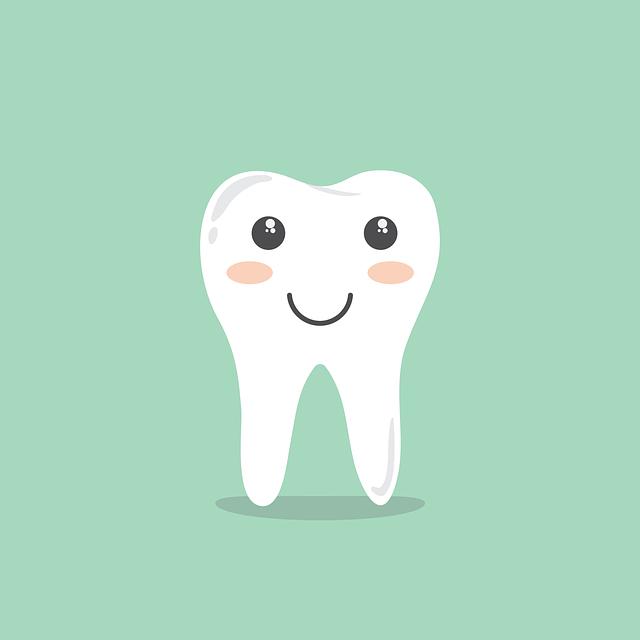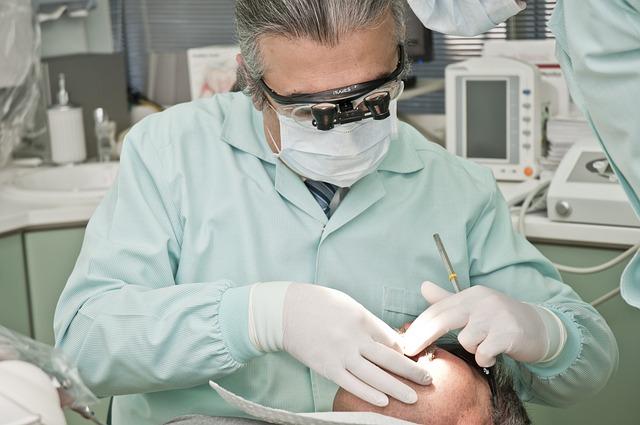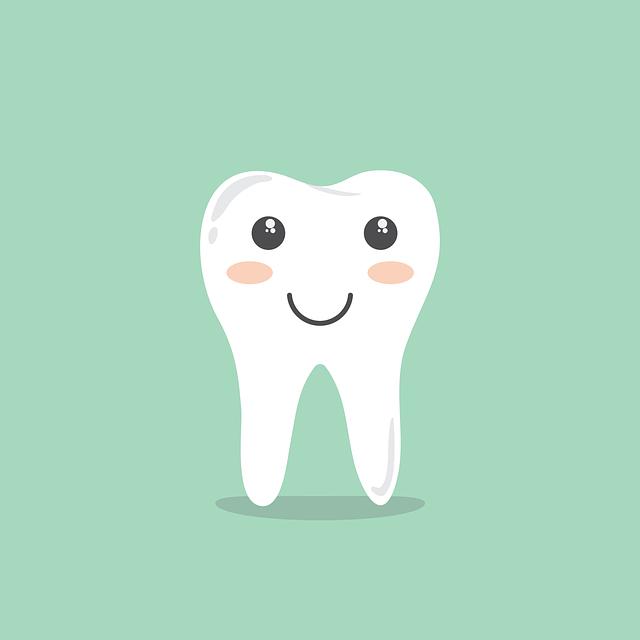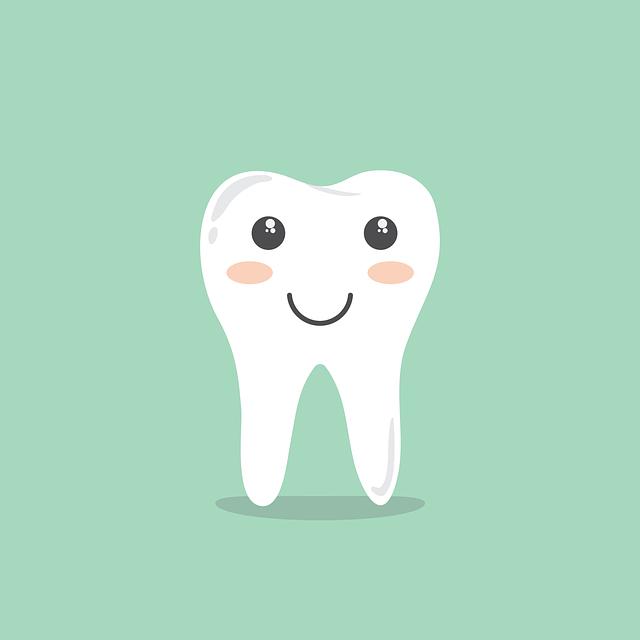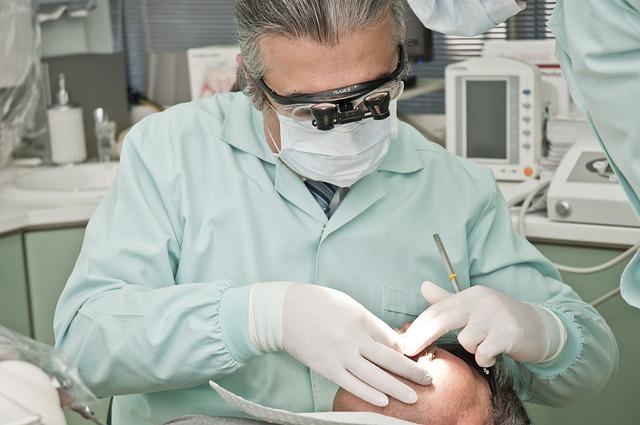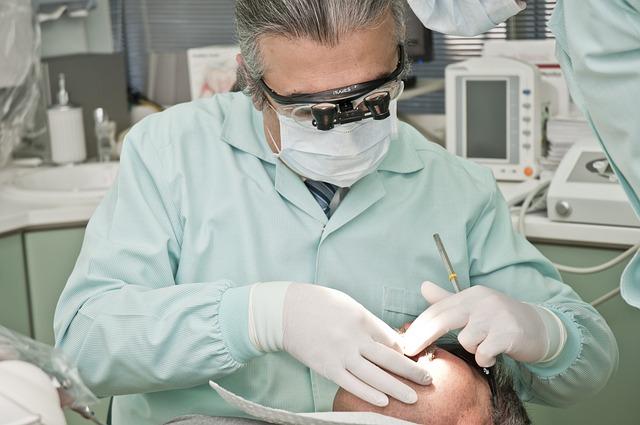How Does Salt Help Teeth: Analyzing Effects
Salt is an essential ingredient that adds flavor to our favorite dishes, but did you know that it can also benefit our teeth? Yes, you heard that right! In this article, we will dive deep into the fascinating world of dental health and explore the intriguing effects of salt on our pearly whites. Armed with knowledge and a neutral perspective, we will unravel the mysteries surrounding this humble mineral and discover just how salt can lend a helping hand to our precious teeth. So, brace yourself for an enlightening journey as we analyze the remarkable effects of salt on dental health.
1. The Role of Salt in Dental Health: Unveiling the Hidden Benefits
Salt has long been recognized for its role in enhancing the flavor of our food, but did you know that it also plays a significant role in maintaining dental health? While excessive salt consumption has been linked to various health issues, when used in moderation, salt can actually offer several hidden benefits for your teeth.
Here are some of the ways in which salt can positively impact your dental health:
- Prevents gum inflammation: Saltwater rinses have been used for centuries as a natural remedy for gum inflammation and soreness. The salt’s antibacterial properties help reduce bacteria in the mouth, promoting healthier gums.
- Neutralizes acidity: Acidic foods and drinks can erode tooth enamel and lead to tooth sensitivity. Salt acts as a natural neutralizer, reducing the acidity and protecting your teeth from potential damage.
- Aids in healing: Saltwater rinses can promote faster healing of oral wounds and canker sores. The salt’s mild antiseptic properties help cleanse the area and reduce inflammation.
It’s important to note that while salt can provide certain benefits for dental health, it should be used in moderation and in conjunction with a comprehensive oral hygiene routine. As with any health-related topic, it’s always a good idea to consult with your dentist or healthcare professional for personalized advice.

2. Exploring the Mechanisms Behind Salt’s Dental Effects: A Comprehensive Analysis
In order to fully understand the dental effects of salt consumption, a comprehensive analysis of the underlying mechanisms is crucial. By delving into the intricate workings of how salt interacts with our oral health, we can gain valuable insights that help us make informed decisions about our dietary habits. Here, we present a detailed examination of the various mechanisms involved, shedding light on the impact salt can have on our teeth.
Salt erosion: One of the primary dental effects of excessive salt consumption is erosion of tooth enamel. High levels of salt in the mouth can create an acidic environment that gradually weakens and wears away the protective enamel layer. This can lead to increased sensitivity, tooth decay, and a greater risk of cavities.
Saliva composition: Salt consumption also influences the composition of saliva, a crucial component in maintaining oral health. Excessive salt intake can alter the pH balance of saliva, making it more acidic. This change in acidity can negatively impact the mouth’s natural defense mechanisms, compromising its ability to neutralize harmful bacteria and protect against dental issues.
Dehydration effects: Another aspect to consider is the dehydrating effect of salt on the body. Insufficient hydration can lead to a decrease in saliva production, resulting in a dry mouth. This dryness can contribute to an increased risk of gum disease, bad breath, and tooth decay, as saliva plays a key role in washing away food particles and maintaining oral hygiene.

3. Understanding the Impact of Salt on Tooth Enamel: A Scientific Perspective
When it comes to our oral health, it is crucial to understand the impact of salt on tooth enamel from a scientific perspective. Salt, also known as sodium chloride, is a common ingredient in our diets and is often added to enhance the flavor of various foods. However, excessive consumption of salt can have detrimental effects on our teeth.
Here are some key points to consider:
- Salt and tooth enamel erosion: The high sodium content in salt can contribute to the erosion of tooth enamel over time. Enamel is the outer protective layer of our teeth, and its erosion can lead to tooth sensitivity, cavities, and other dental problems.
- Salt and pH balance: Salt has the ability to alter the pH balance in our mouths. An acidic environment can promote the growth of harmful bacteria, which can further damage tooth enamel and increase the risk of tooth decay.
- Balanced salt consumption: While excessive salt intake can be harmful, it is important to note that salt is an essential mineral for our overall health. Maintaining a balanced diet that includes adequate amounts of salt, along with regular brushing, flossing, and dental check-ups, can help mitigate the negative impact on tooth enamel.
By understanding the scientific perspective on the impact of salt on tooth enamel, we can make informed decisions about our dietary choices and take appropriate measures to protect our oral health.

4. The Surprising Ways Salt Strengthens Teeth: An In-Depth Examination
While salt is commonly associated with causing tooth decay, it may come as a surprise that it can actually strengthen teeth when used correctly. Here are some surprising ways in which salt can benefit your dental health:
- Prevents bacterial growth: Salt has natural antibacterial properties that can help inhibit the growth of harmful bacteria in your mouth. By reducing the number of bacteria, salt can contribute to maintaining a healthier oral environment.
- Aids in remineralization: Salt contains essential minerals like calcium and phosphate, which are vital for remineralizing tooth enamel. Regular use of salt-based toothpaste or mouth rinses can assist in replenishing these minerals and strengthening the enamel, making your teeth more resistant to decay.
- Reduces inflammation: Salt has anti-inflammatory properties that can help soothe gum inflammation and reduce swelling. Gargling with a saltwater solution can provide relief from gum infections and promote faster healing.
While salt can offer these surprising benefits, it’s important to use it in moderation and as part of a comprehensive oral care routine. Consulting with your dentist is always advised to ensure you’re using the right products and techniques for your specific dental needs.

5. Salt as a Natural Remedy for Dental Health: Debunking the Myths
There has been a lot of buzz lately about using salt as a natural remedy for dental health. While it’s true that salt can provide some benefits, it’s important to separate fact from fiction. Let’s debunk some common myths surrounding this topic:
- Myth 1: Salt can cure cavities. While salt can help to alleviate some symptoms of cavities, it cannot cure them completely. It can provide temporary relief by reducing inflammation and killing bacteria, but it’s essential to seek professional dental care for proper treatment and prevention.
- Myth 2: Salt can replace regular brushing and flossing. Salt can be a useful addition to your oral hygiene routine, but it should never replace brushing and flossing. These are crucial for removing plaque and food particles that salt alone cannot eliminate. Use salt as a complementary treatment, not a substitute for proper oral care.
- Myth 3: Saltwater rinses can heal gum disease. Saltwater rinses can indeed provide some relief for gum disease symptoms, such as swelling and inflammation. However, they are not a cure for gum disease. Professional intervention, like scaling and root planing, is necessary to treat the underlying cause of gum disease and prevent further complications.
While salt can offer benefits for dental health, it’s important to understand its limitations. Consult with your dentist for personalized advice and maintain a comprehensive oral hygiene routine for optimal dental well-being.

6. The Science Behind Salt’s Antibacterial Properties: Shielding Teeth from Harm
Salt has long been recognized for its antibacterial properties, but have you ever wondered how it can shield your teeth from harm? Let’s delve into the fascinating science behind salt’s ability to combat bacteria and protect your dental health.
1. Osmosis and Dehydration:
When salt comes into contact with bacteria, it disrupts their cell membranes through a process called osmosis. The high concentration of salt outside the bacterial cells draws out the water from within, causing them to dehydrate and ultimately die. This antimicrobial effect of salt is particularly beneficial for oral health, as it helps combat harmful bacteria that can lead to tooth decay and gum disease.
2. pH Balancing:
Another way salt shields teeth from harm is by balancing the pH level in the mouth. Acidic environments promote the growth of bacteria, which can erode tooth enamel and lead to cavities. Salt helps neutralize the acidity by increasing the pH level, creating a less favorable environment for bacteria to thrive. This pH-balancing effect of salt contributes to maintaining a healthy oral ecosystem.
3. Anti-inflammatory Properties:
Besides its antibacterial effects, salt also possesses anti-inflammatory properties. Inflammation in the gums can be caused by the accumulation of bacteria, leading to discomfort and gum disease. Salt’s ability to reduce inflammation helps alleviate these symptoms and promotes gum health. Regular saltwater rinses can be an effective and natural way to support your overall dental hygiene.
7. How Salt Supports Oral Hygiene Routine: An Essential Ingredient for Healthy Teeth
Salt is an essential ingredient that plays a vital role in maintaining a healthy oral hygiene routine. It offers various benefits that contribute to stronger and healthier teeth. Here’s how salt supports your oral health:
1. Promotes gum health: Saltwater rinses are commonly used as a natural remedy for gum infections and inflammation. The antibacterial properties of salt help to reduce bacteria in the mouth, preventing gum disease and promoting healthier gums.
2. Removes stains and whitens teeth: Salt can act as a natural teeth whitener due to its abrasive nature. When mixed with baking soda or used alone, it can help remove surface stains and brighten your smile.
3. Alleviates mouth sores: Saltwater rinses are also effective in soothing mouth sores like canker sores and cold sores. The salt solution helps to reduce inflammation and accelerate the healing process.
4. Fights bad breath: Saltwater gargles can help eliminate bad breath by neutralizing the bacteria that cause it. The saline solution helps cleanse the mouth and maintain a fresh breath throughout the day.
Incorporating salt into your oral hygiene routine can be as simple as adding a pinch of salt to your toothpaste or using a saltwater rinse. However, it’s important to remember that excessive salt usage can have negative effects, so moderation is key. Consult with your dentist to determine the best ways to incorporate salt into your oral care regimen.
8. Salt’s Role in Promoting Saliva Production: Enhancing Oral Health Naturally
Salt plays a crucial role in promoting saliva production, which in turn enhances oral health naturally. Saliva is essential for maintaining a healthy mouth as it helps to cleanse and protect the teeth and gums. Here’s how salt contributes to this process:
1. Stimulates saliva production: Salt has a natural ability to stimulate the salivary glands, encouraging them to produce more saliva. This increase in saliva helps to wash away food particles and bacteria, preventing plaque buildup and reducing the risk of tooth decay and gum disease.
2. Balances pH levels: Saliva acts as a natural buffer, helping to neutralize acids in the mouth that can erode tooth enamel. By promoting saliva production, salt aids in maintaining a balanced pH level in the mouth, protecting against acid-related dental issues.
3. Antibacterial properties: Salt also possesses antibacterial properties, which can help to kill harmful bacteria present in the mouth. This further contributes to maintaining oral health and reducing the risk of infections.
Incorporating salt into your oral care routine can be done in various ways. You can try rinsing your mouth with a saltwater solution, using a salt-based mouthwash, or even opting for toothpaste that contains salt. However, it’s important to note that while salt can be beneficial, excessive use should be avoided as it may lead to dehydration or other health concerns. It’s always best to consult with a dentist for personalized advice on incorporating salt into your oral hygiene routine.
9. Unraveling the Connection Between Salt and Tooth Sensitivity: A Closer Look
One common complaint that many individuals experience is tooth sensitivity. It can be a discomforting sensation, causing pain or discomfort when consuming hot or cold foods and beverages. While there are various factors that can contribute to tooth sensitivity, one often overlooked culprit is salt.
Salt, or sodium chloride, is a mineral that is commonly used in food preparation and as a flavor enhancer. However, excessive consumption of salt can have negative effects on oral health, including tooth sensitivity. The connection between salt and tooth sensitivity lies in the way salt can affect the delicate balance of fluids in the mouth.
When we consume foods high in salt content, it can lead to dehydration in the mouth, reducing the production of saliva. Saliva plays a crucial role in protecting our teeth and gums by neutralizing acids and washing away bacteria. When saliva levels are low, the protective barrier weakens, making the teeth more susceptible to sensitivity. Additionally, salt can also irritate the gums, causing inflammation and further exacerbating tooth sensitivity.
To prevent or alleviate tooth sensitivity caused by salt, it is important to be mindful of salt intake and adopt good oral hygiene practices. Here are some tips:
- Limit your consumption of salty foods and snacks.
- Stay hydrated by drinking plenty of water throughout the day.
- Use a toothpaste specifically designed for sensitive teeth.
- Brush gently with a soft-bristled toothbrush to avoid further irritation.
- Consider using a mouthwash that contains fluoride to strengthen tooth enamel.
By understanding the connection between salt and tooth sensitivity and taking appropriate measures, you can better manage and reduce the discomfort associated with this condition. Remember, maintaining good oral health and making informed dietary choices go hand in hand when it comes to keeping your teeth and gums healthy.
10. Salt: A Powerful Ally in the Fight Against Gum Disease and Tooth Decay
Gum disease and tooth decay can be a constant battle for many individuals, but did you know that salt can be a powerful ally in this fight? Salt, a common household ingredient, possesses several properties that can help combat these oral health issues.
Here are some ways in which salt can aid in the fight against gum disease and tooth decay:
- Antibacterial properties: Salt has natural antibacterial properties that can help eliminate harmful bacteria in the mouth. Rinsing your mouth with a saltwater solution can effectively reduce the bacteria that contribute to gum disease and tooth decay.
- Reduces inflammation: Swollen and inflamed gums are common symptoms of gum disease. Salt has anti-inflammatory properties that can help reduce gum inflammation and provide relief. Regular saltwater rinses can promote healthier gums.
- Alleviates tooth sensitivity: Saltwater rinses can also help alleviate tooth sensitivity, a common issue associated with gum disease and tooth decay. The salt solution can desensitize the nerves in the teeth, providing temporary relief from sensitivity.
While salt can be a valuable addition to your oral care routine, it’s important to remember that it should be used in moderation. Excessive salt consumption can have negative effects on your overall health. As with any oral health concern, it’s always best to consult with your dentist for personalized advice and treatment options.
Frequently Asked Questions
Q: How does salt help teeth?
A: Salt, when used properly, can have a positive impact on dental health.
Q: What are the effects of salt on teeth?
A: Salt can help strengthen teeth, promote oral hygiene, and provide relief from certain dental problems.
Q: How does salt strengthen teeth?
A: Salt contains minerals such as calcium and phosphate, which are essential for maintaining strong and healthy teeth. These minerals help repair enamel and prevent tooth decay.
Q: Can salt promote oral hygiene?
A: Yes, salt can be an effective tool for maintaining oral hygiene. It has natural antibacterial properties that can help kill harmful bacteria in the mouth, reducing the risk of gum disease and other oral infections.
Q: How can salt provide relief from dental problems?
A: Saltwater rinses, also known as saline rinses, can help alleviate oral discomfort caused by mouth sores, gum inflammation, or toothaches. The saltwater solution can reduce swelling, disinfect the affected area, and soothe pain temporarily.
Q: Is there a specific salt type that works best for dental health?
A: While various types of salt can be used, it is generally recommended to use non-iodized, natural sea salt or Himalayan pink salt for dental care. These options are less processed and contain more minerals compared to regular table salt.
Q: How should salt be used for dental benefits?
A: Salt can be used in various ways for dental benefits. One common method is to prepare a saltwater solution by dissolving half a teaspoon of salt in warm water and using it as a mouth rinse. Additionally, salt can be mixed with other natural ingredients to create homemade toothpaste or used as a gentle abrasive for brushing teeth.
Q: Are there any risks associated with using salt for dental purposes?
A: When used in moderation and as directed, salt poses minimal risks. However, excessive use of salt or using it in high concentrations may cause temporary dryness of the mouth or irritation. It is important to consult with a dentist if any concerns arise.
Q: Can salt be a substitute for regular dental care practices?
A: While salt can provide certain benefits, it should not replace regular dental care practices such as brushing, flossing, and professional dental cleanings. These practices are essential for maintaining overall oral health and preventing more serious dental issues. Using salt as a supplementary approach alongside standard dental care routines is recommended.
Q: Can everyone use salt for dental benefits?
A: Salt can generally be used by most individuals for dental benefits. However, people with specific medical conditions or sensitivities should consult with a healthcare professional or dentist before incorporating salt into their dental care routine.
Insights and Conclusions
In conclusion, after analyzing the effects, it is evident that salt can indeed help improve dental health. By acting as a natural disinfectant, salt helps to reduce harmful bacteria in the mouth, preventing tooth decay and gum disease. Additionally, its anti-inflammatory properties provide relief from oral discomfort and promote faster healing. Incorporating salt into your oral hygiene routine, whether through saltwater rinses or toothpaste, can be a simple yet effective way to maintain healthy teeth and gums. However, it is important to note that while salt can be beneficial, it should not replace regular brushing, flossing, and professional dental care. Remember, maintaining good oral hygiene practices and consulting with your dentist regularly are key to achieving optimal dental health. So, why not harness the power of salt and take a step towards a brighter, healthier smile?
